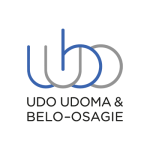Reports of private equity successes and challenges arguably stand in sharper contrast in Nigeria than in comparable emerging markets. Folake Elias-Adebowale, Ozofu ‘Latunde Ogiemudia and Christine Sijuwade of Udo Udoma Belo-Osagie examine the balancing act investors need to perfect, the impact of recent regulatory developments, and reasons for optimism
Nigeria remains open for private equity (PE) business. With its recovery from a "technical economic recession", stabilised democracy and large consumer class, among other factors, underpinning continuing interest in the consumer goods, financial services, energy, pharmaceuticals, bio and medicals and industrial and chemicals sectors, analysts discern positive trends in areas including agribusiness, education, health, construction and infrastructure. While legal and compliance challenges continue to feature as strategically important, market developments suggest that on balance, the overall outlook for PE fundraising and deal activity in Nigeria remains positive.
There is a dearth of discrete laws and regulations addressing the unique concerns and objectives of PE as a distinct asset class, even though the Securities and Exchange Commission (SEC) regulations on fund structuring are more evolved in this respect than comparable legislation in other sub-Saharan countries, excluding South Africa. Transactional activity is regulated under the general investment framework and participants note challenges including capitalisation requirements for fund structuring and an insufficient distinction in the treatment of PE as distinct from other asset classes, such as collective investment schemes.
Emerging markets analysts' recommendations, such as the Emerging Markets Private Equity Association (EMPEA) Guidelines, have highlighted the need for flow-through taxation for investment vehicles and the direct pooling of funds in such vehicles without incurring additional tax both at the level of the investment vehicle and on partnership distributions, as key to creating an optimal environment for PE activity. Another factor that would help create an optimal environment for PE investment in Nigeria would be the relaxation of restrictions on allocations to PE as an asset class, particularly from pension fund assets, which continue to exist.
Partnership structures
Nigerian PE funds are typically structured as limited liability companies under the Companies and Allied Matters Act 2004 (CAMA) or as general partnerships, or in Lagos State, limited partnerships (LPs) or limited liability partnerships (LLPs), which are registered under the provisions of the Partnership Law of Lagos State 2009, as amended (Partnership Law). The Partnership Law suggests that an LLP is a separate legal entity distinct from the partners, meaning that an LLP can enter into transactions and contracts, hold assets, acquire rights and assume obligations all in its own name.
While the legislative competence of the Lagos State legislature to enact a law regulating partnerships is not in doubt, there is an ongoing debate about the legislative competence of Nigerian states to enact laws for the formation of corporate entities such as LLPs. To address this question, on January 17 2019, the House of Representatives passed the Companies and Allied Matters Act (Repeal and Re-Enactment) Bill (the Bill), which had previously been passed by the Senate on May 15 2018.
The Bill contains several innovative provisions in the context of Nigerian company law, some of which include the introduction of single member and single director companies, as well as provisions that permit greater flexibility in shareholder and governance arrangements and that allow LPs and LLPs to be recognised and registered within the framework of the federal Companies Act, thereby providing statutory backing for these fund structures. Legislative bills, however, require the assent of the President in order to be passed into law and as this has not yet been granted in relation to the Bill, the Bill is at risk of lapsing with the forthcoming change in administration.
Another positive recent development from a PE perspective was the issuance of the Regulation on the Adoption and Compliance with the Nigerian Code of Corporate Governance 2018 (NCCG Regulation) by the Minister for Trade and Investment, Dr Okechukwu Enelamah, in January 2019. The NCCG Regulation unveiled the Nigerian Code of Corporate Governance 2018 (NCCG 2018), which had earlier been approved by the Financial Reporting Council of Nigeria (FRCN).
The NCCG seeks to institutionalise corporate governance standards in all Nigerian companies, beginning with mandatory compliance for all public companies (listed and unlisted), all private companies that are holding companies of listed companies or other regulated entities, and all concessioned or privatised companies. The introduction of the NCCG is commendable and reflects a positive step towards elevating corporate governance standards in Nigeria. It is hoped that the implementation of the NCCG will improve investors' and stakeholders' confidence in Nigerian companies. The status of the NCCG vis-à-vis the existing sector-specific codes in the event of a conflict is, however, unclear, given that it does not explicitly state how conflicts between its provisions and other sector-specific codes should be prioritised.
Scaling the learning curve
PE transactions can usually be completed fairly quickly if they involve private companies and experienced parties and advisers, are not complex and require no sectoral or other regulatory approvals. The Government and regulators are increasingly cognisant of the need for focused capacity building and investors and promoters of prospective Nigeria-domiciled PE vehicles should bear in mind that a significant amount of regulatory engagement may sometimes be required to successfully navigate – and in some instances scale – potential regulatory roadblocks resulting from less familiar or more complex structures.
Delays may arise in the process of obtaining pre- and post- acquisition regulatory approvals from sector-specific regulators (such as the Central Bank of Nigeria, the Pension Commission of Nigeria, the National Insurance Commission and the Nigerian Communications Commission), as well as from the Federal Competition and Consumer Protection Commission (FCCPC), which was recently established pursuant to the Federal Competition and Consumer Protection Act 2019 and which is now responsible for administering merger control in Nigeria. Delays may also arise in the process of conducting legal, financial and technical due diligence, as investee companies sometimes provide inadequate information or documents, and public records – in companies registries, lands registries, courts etc – are not computerised, often requiring physical reviews to be conducted. Such considerations must be taken into account in devising transaction timelines and deliverables.
Disputes between a PE investor and the local partner or management of an investee company cannot always be resolved amicably and in some cases, it may be necessary to resort to the Nigerian judicial system. The courts, however, are generally congested, which has contributed to the notable preference for arbitration as the mechanism for dispute resolution for many corporate and investment transactions, including PE transactions. Until these challenges are addressed, PE investors can take advantage of alternative means of dispute resolution, such as local arbitration under the Arbitration and Conciliation Act (which is modelled on the UNCITRAL Rules) or foreign arbitration, for instance under the rules of the International Chamber of Commerce or the London Court of International Arbitration, which, subject to satisfying certain clearly outlined conditions, will be recognised and enforced by Nigerian courts.
Nigeria also continues to face infrastructural challenges including with respect to electricity and water supply, domestic aviation safety, broadband and fledgling mobile communication and transportation and roads, any and all of which will impact on the cost of running a business. PE investors in Nigeria must take into consideration these unique challenges in the operating environment in order to set realistic goals.
Private equity in Africa has generally outperformed the listed index. It also has unique capabilities to invest in the kinds of companies that have the capacity to generate superior risk-adjusted returns and would prove valuable for pension fund portfolio diversification, particularly in an economy with underdeveloped capital markets. The potential presented by these PE features is however hampered by regulatory restrictions on offshore investments of pension fund assets and on the extent to which pension fund assets may be invested in PE. Money market instruments – particularly treasury bills and government bonds, with their low risk, guaranteed principal and relatively attractive rates of return, continue to compete with and to attract significantly greater pension fund asset investment. The Regulation on Investment of Pension Fund Assets issued by the National Pension Commission in 2010, and amended in 2017, now permits pension funds to invest up to 10% of their fund's assets in PE funds; encouraging pension funds to diversify their portfolio in this direction.
A final consideration is that following months of FX volatility and uncertainty during Nigeria's technical recession, the introduction of various policies by the Central Bank of Nigeria (CBN), including the Investors and Exporters (I&E) window that facilitates FX trading at market-determined rates, has helped to stabilise the naira and steady retail prices. The CBN has continued to defend the naira and given the global fluctuations in crude oil prices, the CBN's continued ability to do this successfully will be critical to sustaining and driving investor confidence in the economy.
Silver linings
The above outlined challenges present opportunities and significant potential rewards for longer term PE investment in Nigeria in infrastructure, food, consumer goods, human capital development, healthcare, entertainment and leisure, to mention a few. Efforts to actualise the objective of diversifying the Nigerian economy away from the over-dependence on crude oil during the last two administrations in Nigeria – under Goodluck Jonathan (2011-15) and Muhammadu Buhari (2015-19) – appear to have highlighted other sectors of the economy with notable growth potential, notably agriculture, healthcare, information and communication technology (ICT, including fintech) and education.
Looking at agriculture, Nigeria's economy is import-dependent, including with respect to staple foods like rice, wheat and meats and other consumer products. A recent focus on the agricultural sector appears to be generating interest in the agricultural value chain. The largely undeveloped agricultural industry in Nigeria, coupled with the demographics of having Africa's largest population, make a good case for investing in agriculture in Nigeria. This may account for notable PE activity in the sector in 2018, exemplified by transactions such as Sahel Capital's investment in Coscharis Farms.
One of the earliest success stories for PE investment in ICT was the 2010 Helios-led investment in Interswitch, the largest payment processing service provider in Nigeria with operations in several East African countries. Helios's success has been picked up by others who see the growth opportunities in the Nigerian ICT space. Convergence Partners, which invested in the Venture Gardens Group in 2016, raised the Convergence Partners Communication Infrastructure Fund, a $200 million fund dedicated to investing in ICT in Nigeria. Andela opened its doors in Lagos four years ago. It has trained more than 1,000 software developers and has gone on to attract millions of dollars in investments including, most recently, from TLcom Capital Partners. The e-commerce and digital marketing space also continues to look interesting in Nigeria, with the Carlyle Group making a $40 million acquisition in online travel agency Wakanow in 2018. TPG Growth invested $48 million in Cellulant, a leading digital payments provider that reaches 40 million people across 11 African countries including Nigeria, for and on the behalf of the Rise Fund and its affiliated entities. The deal, announced in 2018, is the largest of its kind dedicated solely to Africa's fintech and payments space, including in Nigeria.
As for education, following its successful investment in Greensprings Schools in 2017, Verod Capital made another investment in the educational sector in 2018, this time in Rainbow Educational Services, the company that operates Rainbow College and Pampers Private School in Lagos. Decades of poor investment into the public educational system has forced Nigeria to resort to private schools for primary and secondary education in particular. While there are several private schools that offer a high-quality service, the cost of this service excludes the vast majority of the population. There remains an opportunity for investment in educational institutions that are affordable for the middle class.
There are also opportunities for social impact and analogous investments aimed at increasing financial inclusiveness; at empowering micro, small and medium enterprises; and at providing microfinance services to lower income households. It is interesting to note that LeapFrog Investments recently announced the largest-ever PE fund by a dedicated impact fund manager, surging past its $600 million target to reach $700 million. LeapFrog has indicated that the new fund will invest in healthcare and financial services companies in Asia and Africa, targeting 70 million emerging consumers. Investors are reported to include many of the world's leading insurers, pension funds and asset managers, development finance institutions, foundations and family offices. LeapFrog has a history of having successfully invested in ARM Life plc, a high growth insurer, and in ARM Pensions, Nigeria's second largest pension fund administrator.
Reasons for optimism
Nigeria's ranking in the World Bank Ease of Doing Business Index improved in 2017 and the country is positioned to continue improving as the Presidential Enabling Business Environment Council (Pebec) – hopefully – strengthens its efforts to remove various bottlenecks to accessing the country, dealing with regulators, obtaining permits, meeting compliance and implementation requirements and other factors, and to prioritise the modernisation of the legal and regulatory framework. The efforts include key initiatives such as the CAMA Bill provisions which contain the structuring, governance and operational modernisations that would help facilitate PE structuring and investments even as more discrete regulations are developed for the sector.
Notwithstanding the highlighted challenges, it is encouraging and perhaps even instructive, to note that diverse savvy and experienced investors and institutions from across the PE universe appear, from their recent activity, to remain believers in the growth opportunities that Nigeria has to offer in the short to long term. To name a few, these investors include the IFC, CDC Group (which has recently re-established in Nigeria), the Carlyle Group, African Capital Alliance, TPG Growth's Rise Fund, LeapFrog Investments, Development Partners International, Synergy Capital, Cardinal Stone and AFIG Funds.
This level of activity, coupled with historical industry achievements that include successful exits, high returns and an investment environment that consciously seeks to be conducive to foreign investment (as well as a new representative Private Equity and Venture Capital Association - PEVCA) committed to increasing regulator engagement), will facilitate the exponential growth of the Nigerian PE industry. Given its importance not only as an asset class but as a strategically pivotal tool for Nigerian economic development, it is hoped that as the growth story of Nigerian PE continues to be written, its rich themes and prospects for favourable outcomes are properly and exponentially realised.
About the author |
||

|
|
Folake Elias-Adebowale Partner, Udo Udoma Belo-Osagie Lagos, Nigeria T: +234 1 2719821; 462 2307-12; 2774 921-2 W: www.uubo.org Folake Elias-Adebowale is a partner at Udo Udoma & Belo-Osagie, where she co-heads the private equity, corporate advisory/M&A and oil and gas teams. She advises private equity houses, financial investors, corporates and conglomerates on diverse transactions and matters across her areas of specialisation, which include cross-border and domestic equity and asset investments, acquisitions, disposals, joint-ventures, strategic alliances and restructurings, oil and gas, manufacturing and industrial projects and compliance matters. She is a member of the legal and regulatory council of the Emerging Markets Private Equity Association (EMPEA) and of the legal and regulatory committee of the African Venture Capital Association (AVCA). She sits on the inaugural board and the legal committee of the Private Equity and Venture Capital Association of Nigeria (PEVCAN). In the latter capacity she serves on the technical committee established by the Securities and Exchange Commission to assist with the review of its regulations on private equity in Nigeria. Folake is ranked by The IFLR1000, Chambers Global directory, Chambers FinTech Guide for Nigeria, The Legal 500, Who's Who Legal (M&A and Governance) and Who's Who Legal (Nigeria) for her work across her practice areas, and is highly commended in The Lawyer's 'Africa Elite' Private Equity Report. |
About the author |
||

|
|
Ozofu 'Latunde Ogiemudia Partner, Udo Udoma Belo-Osagie Lagos, Nigeria T: +234 1462 2307-12; 2774 921-2 W: www.uubo.org Ozofu 'Latunde Ogiemudia is a partner in Udo Udoma & Belo-Osagie, where she is part of the firm's corporate advisory, private equity and M&A teams. She is recognised as an extremely resourceful and versatile adviser and has advised on various areas of the law including, corporate and commercial law, private equity, corporate re-structuring and M&A, regulatory compliance, labour and employment and company secretarial. She also co-heads the firm's pro bono practice. She has advised on various equity investments, usually leading teams that carry out legal due diligence reviews in connection with investments and divestments. She was part of the teams that advised clients such as Kellogg, Verod Capital, OCP Africa, Synergy Capital, Carlyle and Actis on their investments in Nigeria. Ozofu is a vice chairperson of the Nigerian Bar Association Section on Business Law Committee for mergers, acquisitions and corporate restructurings. She was recognised in 2018 by the International Financial Law Review (IFLR) as one of the IFLR1000 Women Leaders in Nigeria. She is rated by IFLR1000 2019 as a "highly-regarded lawyer" for M&A and private equity. |
About the author |
||

|
|
Christine Sijuwade Managing associate, Udo Udoma Belo-Osagie T: +234 1462 2307-12; 2774 921-2 E: christine.sijuwade@uubo.org W: www.uubo.org Christine Sijuwade is a managing associate in the firm's private equity, M&A and corporate advisory teams. She advises several local and international private equity firms in connection with the structuring and establishment of their funds as well as their equity investments in a variety of sectors including financial services, healthcare, telecommunications, fintech and FMCG, among others. As part of her corporate advisory practice, she also routinely leads due diligence reviews, in the course of which she evaluates regulatory compliance practices and credit portfolios to assess the viability of targeted businesses for merger, investment and financing transactions. She has also advised on international lending transactions, including syndicated loans and has been involved in a diverse range of financial and capital markets transactions, including private placements and as part of her asset management and collective investment practice, the establishment of mutual funds. She also advises on issues relating to the Nigerian bond market. Christine was a member of the technical advisory committee that advised the Nigerian Senate on the amendments to the Companies and Allied Matters Act. She regularly contributes to World Bank's Annual "Doing Business in Nigeria" survey as well as several publications on private equity in Nigeria. |


